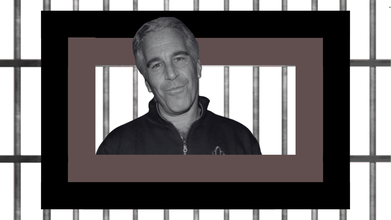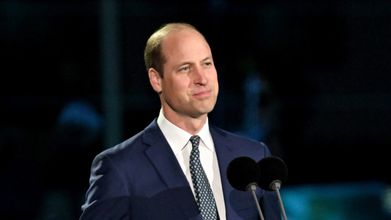- Health Conditions A-Z
- Health & Wellness
- Nutrition
- Fitness
- Health News
- Ayurveda
- Videos
- Medicine A-Z
- Parenting
Gen Z Is Living With Phone Call Anxiety, Plus A Course To Deal With It!

(Credit-Canva)
One of the downsides of living as a technology friendly generation, Gen Z is now facing a new challenge. Telephobia is a new phenomenon that is making people fear receiving calls! According to a survey published in Uswitch about 23% of 18–34 year olds never pick up their calls and over half of them believe that calling out of nowhere means bad news. The survey showed that most Gen Z prefer social media and voice messages.
Young people in Generation Z often feel really nervous when the phone rings. This fear, called telephobia, is becoming more common. They've grown up using their phones mostly for texting and social media, so talking on the phone feels strange and scary. Unlike older people who are used to phone calls, Gen Z hasn't had much practice. This lack of experience makes them feel unsure about how to talk on the phone. They might not know what to say or how to act. This fear is a real problem, especially when they need to use the phone for things like job interviews. They just haven't learned the skills yet, and that makes them very anxious.
While this may seem like a new problem, Nottingham College has already made a course to teach Gen Z how to handle this issue!
Why Younger People Avoid Phone Calls
Young people often avoid unexpected phone calls, associating them with bad news. 68% of them prefer pre-arranged calls. The primary reason for avoiding calls is the concern over spam or scam callers. Older adults are particularly wary, with 74% citing this reason. Other reasons include wanting to identify the caller first, which 50% shared, being busy (24%), and not wanting interruptions (23%). These factors have led to an average of just 5.5 minutes spent on phone calls daily.
To help students get over their fear of phone calls, they practice making calls in a safe environment. The college sets up workshops where students act out real-life phone situations. For example, they might pretend to call a doctor's office or call in sick to work. They sit back-to-back, so they can't see each other, just like in a real phone call. They use scripts to help them know what to say. This practice helps them learn how phone calls work and makes them feel more confident. The COVID-19 pandemic made this problem worse because young people were isolated and didn't have as many chances to talk to people face-to-face. This training helps them rebuild those social skills.
Strategies To Manage Anxiety Around Phone Calls
There are easy ways to make phone calls less scary. First, you can prepare yourself before the call. Make sure you're in a quiet place where you won't be interrupted. You can also write down what you want to say or make a script. If it's for a job interview, research the company so you know what to expect. If you start to feel anxious, try taking deep breaths to calm yourself down. Remember that phone calls can bring good news, not just bad. And if you feel uncomfortable during the call, you can always end it. Knowing you have control can make you feel more confident. These steps help you "take back the power" and feel more comfortable talking on the phone.
Epstein Files: Post-mortem Notes And New Documents Shed Light On Late Sex Offender's Death

Epstein Files: After the Department of Justice (DOJ) released more files on the late sex offender and financer Jeffrey Epstein, previously unseen photographs, including medical details and a detailed timeline of his final weeks in custody have resurfaced. All of this new information has added fresh scrutiny to the case.
A 23-page long document, labelled unclassified titled Jefferey Epstein Death Investigation was prepared by the New York field officer of the FBI. The material has been examined by BBC Verify and was reported to contain close-up images of Epstein's body, notes from his post-mortem examination and psychological observations that were recorded shortly before his death in August 2019.
As per BBC, the photographs included detailed views of injuries to Epstein's neck and show medics attempting to resuscitation after he was found unresponsive in his jail cell. As per the timestamps visible in the files, the images were taken at 06:40 local time on 10 August 2019, almost 16 minutes after a prison staff discovered him.
As per the DOJ's Office of the Inspector General's review report released in June 2023, on August 10 at 6.30am, two SHU staff on duty CO Tova Noel and Material Handler Michael Thomas delivered breakfast to inmates, when Noel was delivering breakfast from the food slot of the door to Epstein's SHU tier, there was no response. Thomas unlocked the door and saw Epstein hanged. The review report mentions that he immediately "yelled for Noel to get help and call for a medical emergency". According to Noel, within seconds of Thomas calling out for the clutter she hit the body alarm, which is a button on an MCC staff member's radio that is used to signal distress or an emergency. Noel also recalled Thomas saying, "Breathe, Epstein, breathe." As per Noel, when she saw Epstein, he looked "blue and did not have a shirt or anything around his neck".

Read: Epstein Files Photos Show A Bottle Of Phenazopyridine, Why We Think This UTI Medication Was There
As per Thomas, when he entered Epstein's cell, he had an orange string, from a sheet or a shirt, around his neck that was tied t the top portion of the bunkbed. The review report notes: "Epstein was suspended from the top bunk in a near-seated position, with his buttocks approximately 1 inch to 1 inch and a half off the floor." As per Thomas, he immediately ripped the orange string from the bunkbed and Epstein's buttocks dropped to the ground, and lowered him to begin chest compressions until staff arrived.
As per the BBC reports, the location is not explicitly stated in the documents, but records indicate Epstein had already been transported to hospital at 06:39, where he was later pronounced dead, suggesting the images were likely taken there.
Some of the photographs show a tag attached to his hand with his name and date of death. In several images, however, his first name appears misspelled as “Jeffery”.
Epstein Files: Post-Mortem Of Jeffrey Epstein And Custody Timeline

The investigation file incorporates sections of an 89-page post-mortem report compiled jointly by the Department of Justice and New York’s Office of Chief Medical Examiner. Among the medical findings were scans documenting fractures in the thyroid cartilage of Epstein’s neck.
BBC Verify said it conducted reverse image searches and “could not find earlier versions” of the photos online before their recent release, indicating they had not previously circulated publicly.
The report also reconstructs Epstein’s detention inside the Metropolitan Correctional Center from his arrest on 6 July 2019 on federal sex-trafficking charges to his death five weeks later.
According to the timeline, Epstein was placed on suicide watch after a 23 July incident in which he was found injured in his cell. At the time, he claimed his cellmate — Nicholas Tartaglione — had attacked him.
Epstein Files: Jeffrey Epstein's Psychological Assessment Before His Death

The following day, during a psychological assessment, Epstein denied wanting to harm himself. BBC reported the document states he said he had “no interest in killing myself” and that it “would be crazy” to do so. Two days later, notes record him saying he was “too vested in my case” and wanted to return to his life.
Despite that, prison officials had recommended he not be housed alone and that guards perform checks every 30 minutes, including unannounced rounds.
The newly released records outline several security lapses the night before Epstein died.
His cellmate had been transferred out the previous day, leaving him alone. Prison logs show guards failed to conduct scheduled checks at 03:00 and 05:00, and the unit’s camera system was not functioning. Staff later discovered his body during a morning inspection.
The files also include two versions of the same FBI report: a full 23-page unredacted copy and a shorter 17-page redacted version that omits the psychological report and detention timeline. The reason for the dual publication has not been explained.
The Department of Justice has been contacted for comment, while the FBI declined to respond, reported BBC.
The release of the material does not change the official ruling of suicide, but its level of detail, particularly the photographs, mental-health notes and security failures — is likely to reignite debate over the circumstances surrounding Epstein’s death.
Parents Across the U.S. Report Difficulty Finding Mental Health Care for Their Child

Credits: Canva
As per the American Psychological Association (APA), only 58.5 per cent of US teens always or usually receive the social and emotional support they need, as per the report by the US Centers for Disease Control and Prevention (CDC).
Another National Institutes of Health (NIH, US) report notes that the most mental health disorders among children ages 3 to 17 in 2016 to 2019 were attention deficit disorder (9.8%, approximately 6 million), anxiety (9.4%, approximately 5.8 million), behavior problems (8.9%, approximately 5.5 million), and depression (4.4%, approximately 2.7 million). For adolescents, depression is concerning because 15.1% of adolescents ages 12-17 years had a major depressive episode in 2018-201.
However, not all are able to receive the help, in fact, parents too find themselves struggling when it comes to helping their children.
Despite growing concern about a mental health crisis among young people in the United States, a large national study suggests the care system continues to fall short for many families.
Researchers from the Harvard Pilgrim Health Care Institute in Boston found that nearly one quarter of children who require mental health treatment are not receiving it.
The findings come from survey data collected from more than 173,000 households between June 2023 and September 2024.
Many Families Recognize the Need but Cannot Get Help
The analysis showed that about one in five households, or 20 per cent, had at least one child who needed mental health support. Yet among those families, nearly 25 per cent said those needs were not met.
Even families that eventually obtained care often faced significant hurdles. Nearly 17 per cent described the process as difficult and exhausting.
The research letter was published February 16 in JAMA Pediatrics.
Household Structure Shapes Access
The study found that family circumstances strongly influenced how easy it was to navigate the health care system.
Families with multiple children reported higher unmet needs at 28 per cent, compared with 21 per cent in households with only one child. Single parent households also reported more difficulty securing appointments.
Education setting played a role as well. Homeschooled children had higher unmet needs at 31 per cent compared with 25 per cent among children attending public school. Researchers suggest this may reflect the absence of school counselors and other school based support systems.
Insurance and finances created additional barriers. About 40 per cent of families covered by Medicaid or without insurance said they could not get care specifically because it was too hard to access.
In a news release, lead author Alyssa Burnett said nearly one quarter of parents reported that at least one child did not receive needed mental health care, highlighting persistent access gaps.
Cost, Availability and Logistics Remain Major Obstacles
Researchers noted several common barriers. Families cited treatment costs, a shortage of clinicians and logistical issues such as scheduling and travel.
The study also found disparities among racial and ethnic groups. Families from minority backgrounds had higher rates of unmet needs compared with non Hispanic white households. However, Black households reported less difficulty accessing care at 13 per cent compared with 17 per cent among white households.
Bringing Care Closer to Families
Experts involved in the study say improving access may require shifting where care is delivered.
Senior author Hao Yu, an associate professor of population medicine at the institute, said states should expand the child mental health workforce and integrate mental health services into primary care settings to remove barriers and improve access to needed treatment.
Prince William Urges Men To Voice Out Emotional Struggles

Royal.uk/
William, the Prince of Wales, has yet again voiced out concerns about mental health in males, which is often a neglected topic. He also opened up about his emotional struggles and urged men to speak out to normalize the issue.
Speaking to BBC Radio 1, William said it has taken a " long time” for him to understand his “emotions”.
"Learn to love yourself and understand yourself. I take a long time trying to understand my emotions and why I feel like I do, and I feel like that's a really important process to do every now and again, to check in with yourself and work out why you're feeling like you do," said the Prince of Wales.
He emphasized the "need for more male role models" who can speak about their mental health publicly.
"We need more male role models out there, talking about it and normalizing it, so that it becomes second nature to all of us."
"It's OK to ask for support, ask a mate, reach out," said William.
It is not the first time that the Prince has spoken about mental health. Earlier, he stated that people must "relax a little bit and be able to talk about our emotions because we're not robots".
Men And Mental Health
Compared to women, men are known to be less likely to seek help for mental health issues. Driven by stigma, reluctance to seek help, and societal pressures regarding masculinity, men are also more likely to die by suicide.
As per a recent study by The Institute for Health Metrics and Evaluation, University of Washington, US, males die from suicide at twice the rate of females. Their attempts also result in death three times more often than female attempts.
A 2020 paper by the World Health Organization (WHO) identified self-reliance, difficulty in expressing emotions, and self-control as the key sociocultural barriers to men’s help-seeking about masculinity norms.
The National Institute of Mental Health attributed genes, a family history of depression, environmental stress, including financial problems, the loss of a loved one, work problems, a difficult relationship, a major life change, or a stressful situation as major reasons for a decline in mental health in men. Medical conditions like diabetes, heart disease, or cancer are also known to raise the risk of depression in men.
Further, substance use, loneliness, and shame are also contributing factors to the elevated suicide rates among men.
While men and women develop most of the same mental disorders, their symptoms may be different. Some common symptoms among men include:
Anger, irritability, or aggressiveness
Prominent changes in mood, energy level, or appetite
Difficulty sleeping or sleeping too much
Difficulty concentrating, feeling restless, or on edge
Misuse of alcohol, drugs, or both
© 2024 Bennett, Coleman & Company Limited

